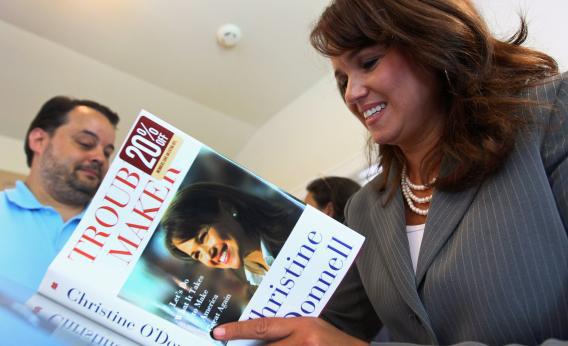In one of the 500 “both sides share the blame” columns that National Journal is required to run every day, Charlie Cook repeats the least useful “data point” about the Tea Party’s role in dragging down the GOP.
In 2010, the GOP lost five of the seven Senate contests The Cook Political Report rated as toss-ups going into Election Day; in 2012, it lost eight of 10. When a party loses 13 of 17 toss-ups over two elections, it has a problem. In many cases, Republicans nominated horrifically flawed candidates who didn’t quite self-destruct but were too weak to win. In other cases, they nominated candidates who did self-destruct. And when these problematic candidates pulled the pin on the grenade, other GOP office-seekers in their states became collateral damage.
In 2010, yes, Sharron Angle and Christine O’Donnell blew elections that Republicans were on track to win. (The Nevada race that Angle lost was less of a sure thing—Harry Reid is underestimated as his enemies’ peril. But we’ll go with it.) In 2012, Richard Mourdock and Todd Akin lost elections that other Republicans could have won, but Todd Akin was not endorsed by any major national or local Tea Party organization.
Okay, so, on to that “eight of 10” number from 2012, from the final pre-election Cook report. Akin’s race wasn’t on that list—by election time, Cook rated the race as a “likely” Democratic win. Mourdock’s race was on the list. But look at the other close races lost by Republicans: Montana, North Dakota, Virginia, Massachussetts, Wisconsin, Connecticut, Maine. In the first four, they nominated current or former Republican legislators, not Tea Party candidates. In Wisconsin, they nominated a former governor who defeated Tea Party candidates in the primary. In Connecticut, they nominated a multi-millionaire who ran to the left. And in Maine, they nominated a fairly centrist Republican who tried, and failed, to win a three-way race against a Democrat and an Independent supported by Democrats. As Ramesh Ponnuru keeps writing, most GOP Senate candidates, even in places like Texas and Montana, ran behind Mitt Romney.
The gaffe/Tea Party theory of Republican defeat is just too pat, too easy. George Allen didn’t lose by 6 points because Loudon County independents got spooked about Todd Akin. Believing that lets Republicans put off any real questions about internal reform.
